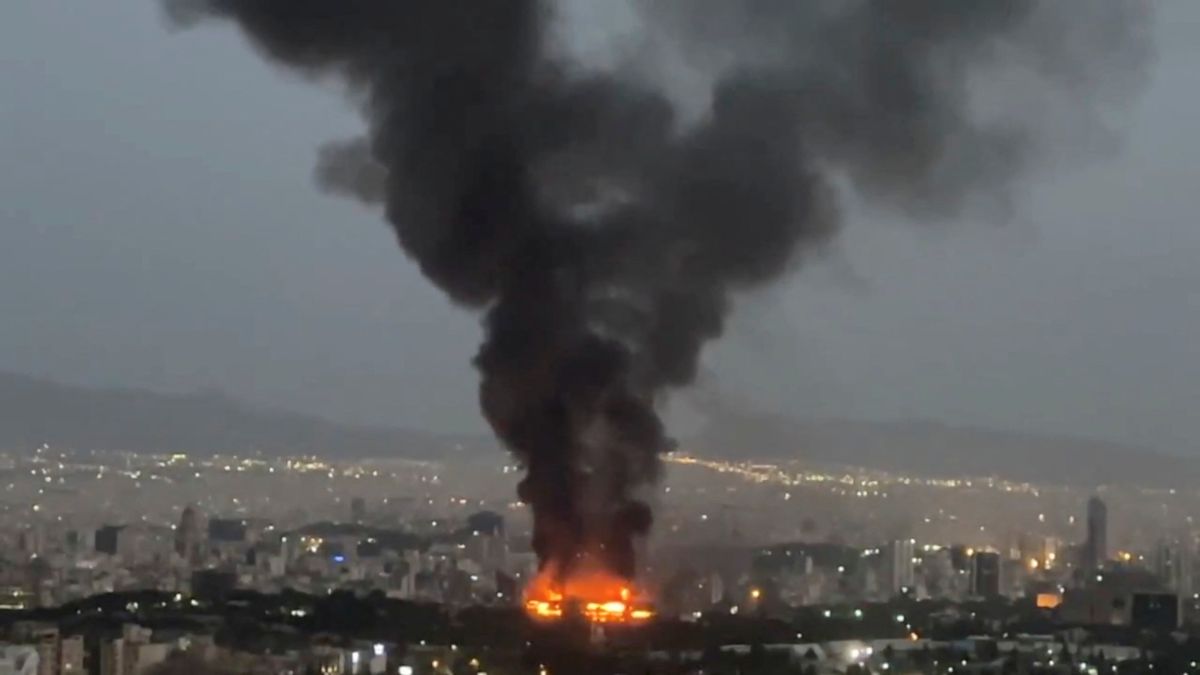As conflict between Israel and Iran escalates, anxiety and uncertainty seem to have gripped nations around the world as they grow wary of its ramifications for the West Asian region and beyond. The conflict has divided the world into three categories of nations: First, those that are openly backing Israel; second, those that are openly backing Iran; and third, those that are watching the chaos unfold from the shadows and urging both sides to de-escalate.
United States: The US, led by President Trump, has firmly backed Israel’s military campaign against Iran, demanding Iran’s “unconditional surrender” and providing political and potential military support, including advanced weaponry and intelligence sharing to the Jewish nation. While the US initially distanced itself from the Israeli strikes on Iran, Trump’s statements later made it clear the attack happened after Washington’s nod. He posted on social media that Iran cannot have a nuclear weapon, and “Everyone should immediately evacuate Tehran!”
Europe’s mixed signal: The G7 and most European countries have backed Israel politically and condemned Iran, but voices like French President Emanual Macron have cautioned against regime change in Iran, fearing regional chaos. “We don’t want Iran to get a nuclear weapon,” Macron said. “But the biggest error would be to use military strikes to change the regime because it would then be chaos and our responsibility is to return discussions as quickly as possible to be able to set a course again on the nuclear and ballistic question.” The UK, meanwhile, has signalled possible military support for Israel. British finance minister Rachel Reeves earlier said the country may support the Jewish nation. “We’re sending in assets to both protect ourselves and also potentially to support our allies,” she said during a TV interview.
Then, there are nations that maintain strategic ties with Iran and condemn Israeli military operation.
Turkey: President Recep Tayyip Erdoğan said Iran has a right to self-defence, backing Tehran’s action and retaliatory strikes on Israel. Erdogan called Israel a “terror state” and likened Netanyahu to Adolf Hitler. “It is entirely natural, legitimate, and lawful for Iran to defend itself against Israel’s banditry and state terrorism,” Erdogan said in Ankara on Wednesday. He said, “Netanyahu has long surpassed the tyrant Hitler in the crime of genocide. We hope their fates will not be the same.” Erdogan also said, “We are doing everything we can to stop this inhumane aggression against Gaza, Syria, Lebanon, Yemen, and our neighbor Iran.”
Impact Shorts
More ShortsRussia’s complicated role: Russia, a close partner of Iran, especially since 2022, has condemned Israeli strikes but stopped short of direct military support, balancing its interests between Tehran and its own relations with Israel. Moscow fears losing an ally if Iran falls but is wary of Iran’s nuclear ambitions. Moscow has meanwhile asked the US to stay out of the conflict, arguing that it would radically destabilise the entire situation.”
China’s quiet concern: China depends heavily on discounted Iranian oil and is nervous about disruptions from the conflict, especially if the Strait of Hormuz is blocked. Beijing has publicly denounced Israel but has avoided overt support to Iran, preferring to stay out of direct involvement. However, it was reported on Wednesday that China sent several cargo planes to Iran. A report by Telegraph stated that cargo plane departing from China for Iran the day after Israel attacked Tehran. As per the report, two more planes left China in the following days as the violence escalated.
Arab world ambivalent: Publicly, many Gulf and Levant countries have criticised Israeli strikes. However, privately, some Sunni Arab states view Iran as a destabilising force and may quietly welcome its weakening. Syria’s new government remains silent, balancing resentment of Iran with cautious diplomacy toward Israel. Qatar meanwhile has fully backed its close Iranian ally.
India: India, which remains a close partner of both Iran and Israel, has urged the two sides to deescalate the crisis. “India urges both sides to avoid any escalatory steps. Existing channels of dialogue and diplomacy should be utilised to work towards a de-escalation of the situation and resolving underlying issues. India enjoys close and friendly relations with both the countries and stands ready to extend all possible support,” New Delhi said. It also distanced itself from a joint statement released by the Shanghai Cooperation Organisation (SCO) that condemned Israeli strikes on Iran.
Regional risks: There is widespread concern that the conflict could escalate into a broader regional war, drawing in multiple countries and destabilising energy supplies, especially if Iran targets oil infrastructure or blocks key maritime routes.
The conflict is polarising the world into camps largely aligned by strategic interests rather than ideology — US and Israel versus Iran and its allies — with major powers like Russia and China navigating a delicate middle path.
Experts warn that despite intense fighting, a lasting ceasefire or diplomatic resolution remains elusive, and the war’s trajectory will shape West Asia’s geopolitics and global energy markets for years to come.
)